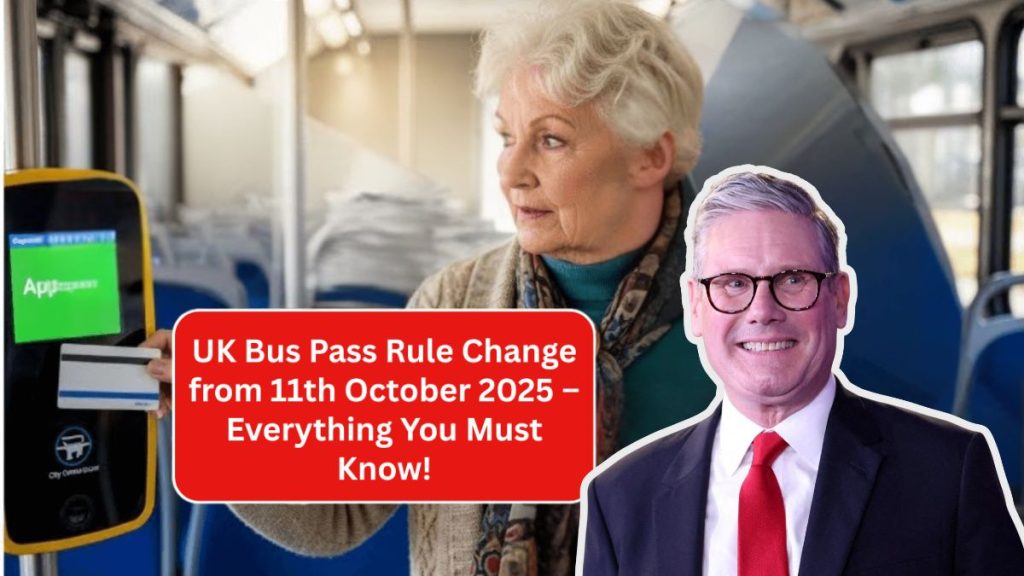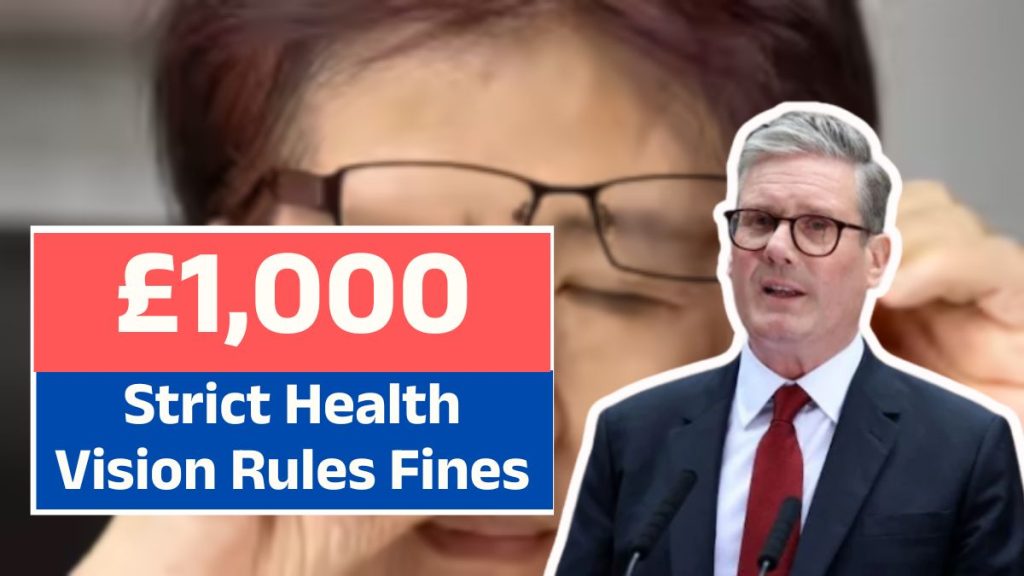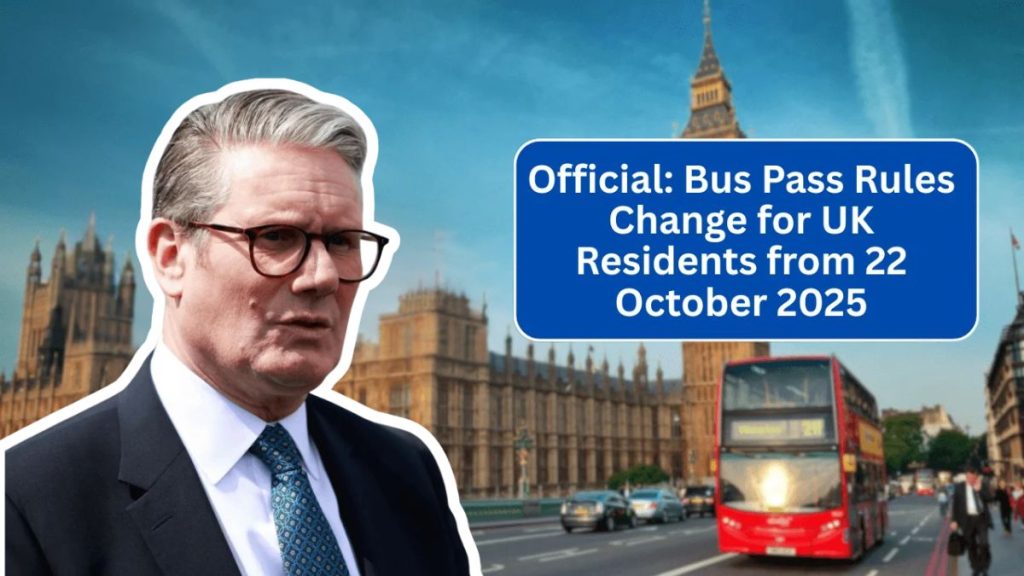From October 27, 2025, major reforms will take effect in the UK’s free bus pass system, a scheme relied upon by millions of older and retired citizens nationwide. For many, the bus pass represents far more than free travel — it symbolizes independence, dignity, and social inclusion.
However, with the government introducing new eligibility and income-based rules, thousands of current and future beneficiaries could see changes in how and whether they qualify. Understanding these updates is essential to avoid disruption in travel and ensure continued access to affordable transportation
Why the Free Bus Pass System Is Changing

The free bus pass has long been one of the most valued public welfare benefits in the UK, supporting mobility for the elderly and disabled. Yet, as Britain’s population ages and public spending tightens, the government has been forced to reassess the program’s long-term sustainability.
Officials argue that while the system remains crucial, it has become financially burdensome, especially as people live and work longer. The universal model — where everyone above a certain age automatically receives a free pass — has come under scrutiny. Many recipients are now part of higher-income brackets, leading to debates about whether the benefit is still equitable.
By introducing means testing and revised eligibility rules, the government aims to make the system more targeted and financially fair, ensuring taxpayer funds primarily support those who genuinely rely on public transport for daily needs.
The Key Changes Coming in October 2025
The new rules mark a fundamental shift in how bus passes will be issued and renewed across England. The following are the most notable updates:
1. Means Testing for Eligibility (Financial Assessment Introduced)
For the first time in the history of the scheme, income verification will be part of the eligibility process.
Applicants under the age of 70 will need to submit financial proof, such as pension statements or benefit records, to qualify for a free bus pass.
This means-tested model prioritizes those in genuine financial need — particularly low-income pensioners, disabled individuals, and those on social support.
2. Adjusted Age and Income Rules
While age remains central to eligibility, those aged 70 and above will also face additional financial checks under the new system.
Previously, everyone who reached state pension age automatically qualified. But now, retirees with higher pension incomes or substantial savings may no longer receive a free pass automatically.
This shift reflects a growing push for “fair targeting”—providing help where it’s most needed while limiting benefits for wealthier retirees.
3. Consistency Across Local Councils
At present, local authorities follow varying criteria for issuing and renewing bus passes.
The 2025 reform will standardize these rules nationwide, ensuring equal treatment across all English regions.
This aims to eliminate the postcode lottery—where a person’s access to free travel depends heavily on their local council’s policies.
Who Will Be Most Affected by the New Rules?
The changes will not impact everyone equally. The degree of effect depends largely on age, income, and regional residency.
Pensioners Over 70
Individuals over 70 will remain eligible for a free bus pass but will face a renewal process that includes financial verification.
Those with higher private pension incomes or savings may lose automatic eligibility, although transitional support is expected for people who depend on buses for medical or social needs.
Adults Under 70
This group is expected to face the tightest eligibility restrictions.
If you are under 70 but currently hold a concessionary travel permit, you may be asked to reapply under the new rules and provide evidence of financial need.
Those who fall above the new income thresholds could see their passes revoked or converted into partial-fare or discounted travel cards instead of fully free access.
Disabled and Low-Income Individuals
The government has repeatedly stressed that vulnerable groups will continue to be protected.
People with disabilities, chronic illnesses, or very low incomes will remain eligible for full travel concessions.
Special provisions will also remain for carers and mobility-impaired citizens, ensuring that accessibility support remains strong.
What About Scotland, Wales, and Northern Ireland?
The changes apply only to England for now. The other UK nations will maintain their existing systems:
- Scotland: Residents remain eligible for a free bus pass from age 60.
- Wales: Eligibility also begins at 60 years old.
- Northern Ireland: No changes have been announced — free passes continue at age 60.
This disparity means that border residents in England may face confusion, as neighboring areas in Wales or Scotland could retain more generous schemes. Some local councils have already raised concerns about cross-border inconsistencies.
The Government’s Explanation: Why Reform Was Necessary
Government officials have justified the reform on the grounds of fairness, efficiency, and long-term sustainability.
They argue that universal free travel was designed for an era when life expectancy and income levels were much lower. Today, with more people working past retirement and benefiting from private pensions, blanket eligibility no longer aligns with fiscal reality.
The new means-tested system is intended not as a cost-cutting measure, but as a reallocation strategy—redirecting public money toward services such as:
- Rural bus networks, which have suffered funding cuts.
- Healthcare and disability transport programs.
- Community travel schemes for isolated or vulnerable residents.
In other words, the government’s message is clear: “Help those who truly need it most.”
How to Prepare for the New Rules
If you currently hold a bus pass or plan to apply after October 2025, a few proactive steps can help ensure you remain eligible.
1. Check Local Council Updates
Your local authority’s transport department will provide guidance on how the new national rules will be applied regionally. Some councils may add additional requirements or offer grace periods for renewals.
2. Gather Financial Documents
Under the new means-testing process, you may need to submit income-related paperwork such as:
- Pension statements
- Benefit entitlement letters
- Recent payslips (if semi-retired or still working part-time)
- Bank statements showing retirement income or savings
Having these ready will make renewal smoother once applications reopen in October 2025.
3. Renew Early
If your current bus pass expires before late 2025, it’s wise to renew early under existing rules. Doing so may let you avoid the new system for at least one renewal cycle.
Early renewal could also help bypass long processing delays, as a high surge in applications is expected once the reforms begin.
4. Explore Alternative Travel Discounts
If you lose eligibility, there are still several options for discounted or subsidized travel:
- Senior railcards offering up to 33% off rail fares.
- Local council travel vouchers for low-income residents.
- Community minibus programs and accessible transport services for elderly and disabled passengers.
These alternatives ensure that mobility remains affordable and inclusive, even for those who no longer qualify for a free bus pass.
What If You Lose Eligibility After October 2025?
Losing your free pass doesn’t necessarily mean losing all travel support. Many councils and regional authorities run “near-miss” programs that offer partial aid to those who narrowly fail the income test.
If you have medical mobility issues, you may still qualify for alternative concessionary benefits under disability transport schemes.
Additionally, community transport services, often operated by non-profit organizations, continue to provide low-cost or free travel options for isolated residents and senior citizens who find regular public transport difficult to use.
How This Will Affect Everyday Life
For many pensioners, particularly those in rural areas or small towns, the free bus pass is not just about saving money—it’s about maintaining independence, social connection, and mental well-being.
Experts warn that losing access could increase social isolation and limit healthcare access for older citizens who rely on public transport to visit clinics or community centers.
The government has acknowledged these risks and pledged to monitor the policy closely, making adjustments if negative effects become apparent during the rollout.
The Bigger Picture – Reforming Public Benefits Fairly
The free bus pass reform is just one piece of a larger trend of welfare restructuring in the UK.
Similar income-based approaches are being discussed for other benefits, including Winter Fuel Payments and TV Licence concessions for senior citizens.
The common goal: to modernize social programs and ensure that help reaches those who truly need it without compromising fiscal responsibility
(3) Five Frequently Asked Questions (FAQs)
Q1. When will the new bus pass rules come into effect?
The reforms will take effect on October 27, 2025, across England.
Q2. Who will still qualify for a free bus pass under the new rules?
Low-income pensioners, disabled individuals, and those facing financial hardship will remain eligible. Wealthier retirees may face additional checks.
Q3. Will Scotland, Wales, or Northern Ireland also change their rules?
No. These changes apply only to England. Other UK nations will continue offering free passes at age 60.
Q4. What documents will I need to apply or renew under the new rules?
You may need to provide pension statements, benefit letters, or income verification documents to confirm eligibility.
Q5. What if I lose eligibility after October 2025?
You can still explore discounted or subsidized travel options through your local council, including community transport or reduced-fare travel cards.




















